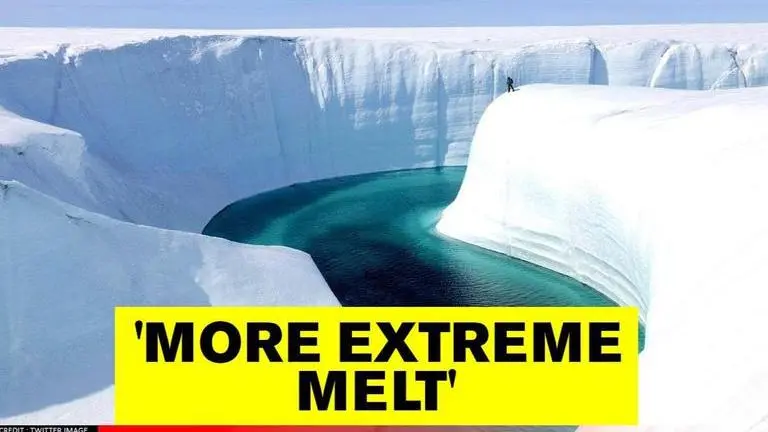Updated 21 August 2020 at 02:43 IST
Greenland ice sheet melted at record rate in 2019 due to spike in emissions: Study
Scientists have said that the loss Greenland ice sheet, largest contributor to rise in sea level, occurred at a record rate in 2019, surpassing previous values.
- Science News
- 3 min read

Scientists have said that the loss of ice in Greenland, the largest contributor to the rise in sea level, occurred at a record rate in 2019, surpassing the previous values by 15 percent.
A new analysis published in the journal Nature states that the scale at which glaciers are melting is ‘unprecedented’ as per records dating as back as 1948. The immediate cause of such huge loss, explained by the researchers, is the high-pressure systems that became blocked over Greenland last summer.
The melt was so massive that it would be just enough to cover entire California in more than four feet of water. Two years after the Greenland ice sheet melted at a minimal rate, it broke all records last summer with 586 billion tons (532 billion metric tons) of ice melting which is more than 140 trillion gallons (532 trillion litres) of water. It is also greater than the yearly average loss of 259 billion tons since 2003 and broke the previous record of 511 billion tons (464 billion metric tons) in 2012.
Advertisement
“Not only is the Greenland ice sheet melting, but it’s melting at a faster and faster pace,” said study lead author Ingo Sasgen, a geoscientist at the Alfred Wegener Institute in Germany.
The new research claiming the rapid mass loss in 2019 is based on satellite measurements and it also revealed that the ice has remained on a “trajectory of increasing mass loss since the late 1990s in response to Arctic warming”.
Over the last three decades, Greenland’s contribution to the global sea levels has only escalated and researchers have informed that the ongoing emissions are further pushing the Northen continent into an era of extreme melting.
Advertisement
In the study, researchers wrote, “In June and July 2019, the ice sheet experienced anomalously high rates of meltwater runoff close to the maximum rates observed over the full 2003–2018 period. GRACE-FO measurements reveal a peak mass change in July 2019…”
Greenland’s ice sheet beyond repair
The news analysis of the Greenland ice sheet comes in the backdrop of separate research that called it beyond repair. The analysis published in the same journal earlier this week said that even if global warming is now stopped, the ice would continue to melt in Greenland.
The researchers have previously concluded that the annual snowfall on the glaciers is no longer enough to reload the ice that melts during the summer. The study observed 234 glaciers across the Arctic spanning 34 years till 2018. The glacier melting caused by global warming and climate change has caused the oceans to rise on an average of one millimetre per year.
Published By : Aanchal Nigam
Published On: 21 August 2020 at 02:43 IST
